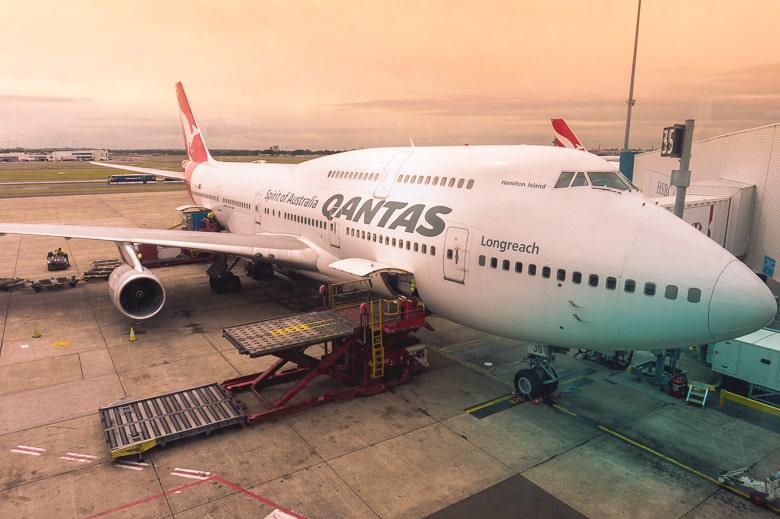Not only will it benefit your career, but travel can broaden your horizons, you’ll make a new set of friends and colleagues, and probably learn a bit about yourself along the way.
If you are joining the almost 60 million professionals working on an expat assignment in another country, there is a lot to think about, not the least of which is the tax implications of your move. In the excitement of packing, finding somewhere to live, and learning all about the happenings of your new area, it’s easy to forget about tax. Although not the most exciting of topics, it’s an important one and it shouldn’t be neglected in the lead-up to moving.

Globalisation has made expatriate tax increasingly complex as we move to and from a wider range of countries. As an individual, it can be difficult to know where to begin, particularly if you are not always clear on your tax obligations in your home country.
To add to the challenge, tax law varies significantly by home and host country. For help out with this, I’ve teamed up with Allianz Care to help you with making sense of tax, including the questions you should ask before moving overseas.
Although the answers will differ, depending on your circumstances, here are a few questions you should ask before accepting a position abroad. Hopefully it can provide some clarity to what you’ll need to do before the move while you’re overseas, and when you return (if you do come back!).
Who do I ask about expatriate tax when moving overseas?
There are several good starting points for seeking advice on paying tax while living abroad:
Human Resources Department
If your company regularly sends expats to work in offices abroad, they may be able to help with tax guidance. If your company provides pre-departure training it may cover tax compliance.
Independent Tax Advisor
For complex needs, you may wish to consult an independent tax advisor in both your home and destination countries. If you can, find someone who is well-versed in both countries, as it can be simpler if one person can handle all of your tax needs.
Colleagues
Although you need to be careful and verify any advice received, it may be worth informally consulting with colleagues if they have also worked in your planned destination, they may have contacts you can use or advice to offer.
Or, if you have friends who have also lived and worked overseas, consider having a chat with them. There are also often expat clubs in your new city, so you might be able to chat with others from your country who have already been through it.

What questions should I ask about expatriate tax? It’s confusing!
When it comes to sorting out your expat tax affairs try to make sure you look after yourself in the following ways:
- You don’t want to suffer undue financial burden caused by working abroad
- You want to make sure to comply with all tax legislation while on assignment overseas
- Keep your tax affairs easy for you to administer and understand
These are just some of the questions you should research or ask an expert before you move abroad if you want to keep your tax affairs in order:
-
What do I need to do before I leave my home country?
Preparing your finances in advance for living as an expat will make everything easier when it comes time to file. Some of the thing you may want to look into in your home country include:
- Splitting the tax you pay in your home country so you are only taxed until the day you leave
- Claiming relief in your country of residence for any tax you may pay at home i.e. on rent from an investment property
- Paying tax in your home country on money earned abroad. South Africa is introducing an expat tax in March 2020, meaning South African expats have to pay tax in South Africa on income earned abroad above a certain threshold
-
What are the tax implications of working abroad now and in the future?
Ask this question to understand how your time abroad will impact tax credits, the income tax you pay, contribution to a state pension (if there is one) and anything else you may be entitled to in your home country.
Don’t forget to ask about the long-term impact, what might happen if you still retire at a planned age or if you were to be made redundant in five- or ten-years’ time. Often it is not until these events occur that we realise there is a problem, so try to be prepared for all possibilities.

-
What do I need to do when I arrive in my new destination?
When you arrive in your new country, take care of some initial steps right away to set yourself up for paying tax as needed. This may include:
- Registering for a Social Security Number or the local equivalent in your new country. In Australia, this will probably be a TFN, or Tax File Number. If you’re a small business owner or sole contractor, you may also need an ABN, or Australian Business Number.
- Finding out if you need to file a tax return
- Filling out paperwork for both your home and destination country
- Checking the tax deadlines, as your new country may operate on a different fiscal year calendar than your home country.

-
Do I still need to file taxes in my home country while I am living abroad?
This is an important question to ask. For many countries the answer will be no, you don’t have to file taxes while you are abroad, but this is not always the case. It is vital that you seek advice and know your tax obligations in your home country.
As an exception to the above, for American citizens, the answer is yes- no matter where you’re living, you’ll still be required to file yearly taxes.
-
What are the tax implications of repatriation?
Returning from an assignment abroad is not always plain sailing from a tax perspective. Depending on the country you are returning to, you may be taxed on your worldwide income, with credits for any foreign tax paid. In other countries there are ‘foreign workers exemptions’ which you may qualify for.
No matter what country you are moving to, there are likely to be some tax implications if you plan to bring funds earned while abroad with you.
While you are planning your finances, don’t forget your health and wellbeing – private health insurance from your home country is unlikely to cover you while you work abroad. You need specialist international health insurance to access the best medical care in your destination country.
Hope that’s a helpful starting point when thinking about a move overseas! Although tax can be complicated, if you take the time early on to understand the requirements of your new home, it’ll make it much simpler when the time comes around to actually file.
Thanks to Allianz Care for answering the above questions! If you have any more questions, let me know and I will try to answer them in a future blog – however, for personal tax issues, it’s always best to speak to a tax pro who knows how to help.
